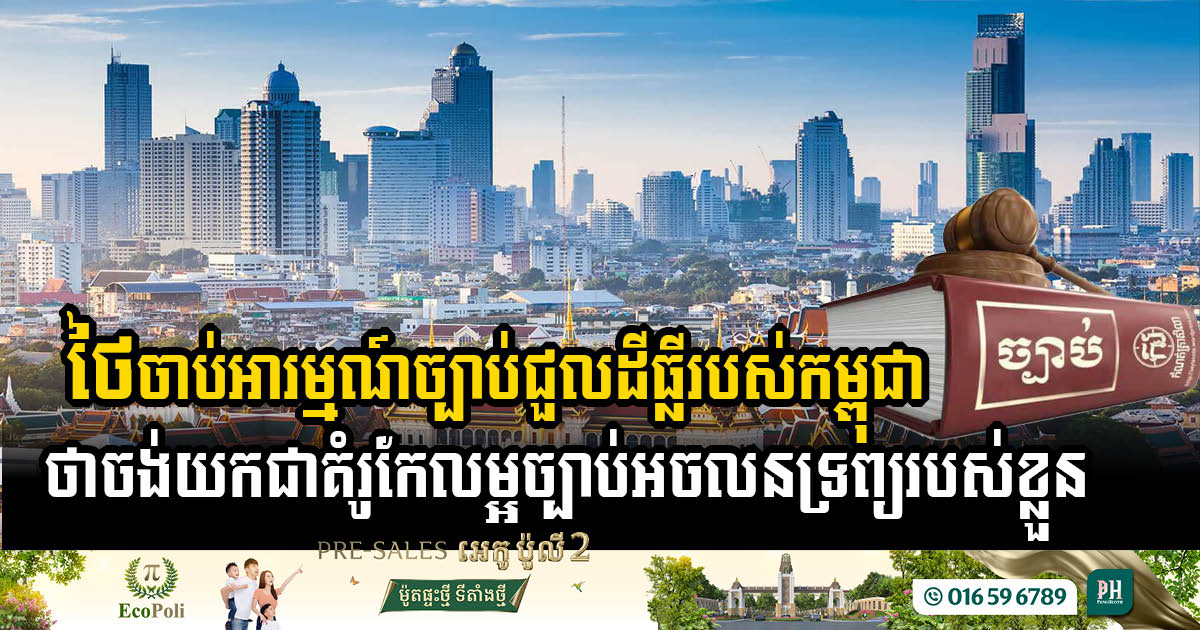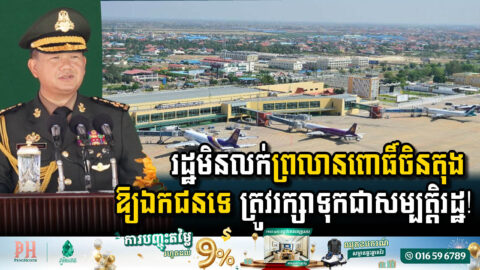Government Unveils Special Incentives for Ten Major Projects in Sihanoukville
In a significant boost to the local economy, the Investment Promotion Team in Sihanoukville has announced its decision to grant special incentives for ten investment and business projects, collectively valued at approximately USD154 million. This initiative aims to attract new investments and enhance the growth of the area, according to an official announcement made on […]
Kampong Thom Province Launches Pilot Project to Enhance Street Food Hygiene
In a significant move to improve public health and bolster tourism, the Ministry of Industry, Science, Technology, and Innovation, in collaboration with the Kampong Thom Provincial Authorities, has officially launched a pilot project aimed at elevating street food hygiene standards. The launch ceremony took place on May 24, 2025, and was presided over by HE […]
Apsara Authority Reopens Historic Building to Enhance Angkor Tourism and Research
In a significant development for tourism and heritage conservation, the Apsara Authority has announced the reopening of an ancient building, over a century old, located near the Bayon Temple. This historic structure will now serve as a center for research and education in Angkor’s conservation efforts. His Excellency Long Kosal, Deputy Director General of the […]
Cambodia and Australia Strengthen Ties with Investment and Trade Commitment
In a significant step towards enhancing bilateral relations, Cambodia and Australia have pledged to explore new strategies for expanding investment and trade cooperation. This commitment was solidified during a meeting held on May 19, 2025, between His Excellency Hun Manet, Prime Minister of Cambodia, and Ms. Frances Adamson, Premier of South Australia. The discussions highlighted […]
Prime Minister Affirms Phnom Penh International Airport Will Remain State Property
In a significant announcement, Samdech Prime Minister Hun Manet confirmed that Phnom Penh International Airport, also known as Pochentong Airport, will remain under government ownership and will not be sold to private individuals. This declaration was made during his address at the 80th anniversary celebration of the Cambodian National Police on May 16, 2025. The […]
Ministry of Tourism to Transform the Birthplace of Samdech Techo Hun Sen into a Historical Site
The Ministry of Tourism is set to embark on an ambitious project to convert the birthplace of Samdech Techo Hun Sen into a historical site. This initiative aims to preserve the legacy of the former Prime Minister for future generations and has garnered strong support from Samdech Men Sam An, the King’s Personal Advisor. During […]



 ខ្មែរ
ខ្មែរ







